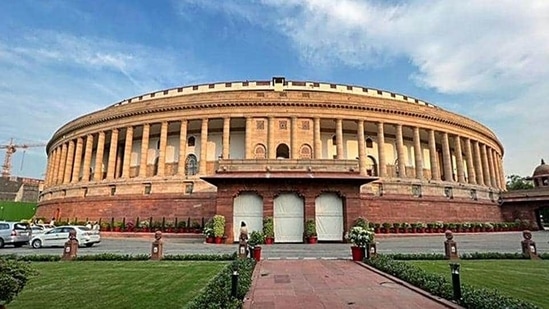A Surat judge sentenced a politician to two years in prison in a 2019 defamation case brought against him for remarks about a community’s surname. This finding may result in his disqualification.

Disqualification of a Lawmaker
- Disqualification of a legislator is prescribed in three circumstances under the Constitution: The first is through Articles 102(1) and 191(1), which provide for the removal of members of Parliament and the legislative body, respectively. The reasons include holding a profit-making office, being of unsound mind or insolvent, and not having valid citizenship.
- Defection: The Tenth Schedule of the Constitution allows for the disqualification of members on the basis of defection.
- The Representation of the People Act (RPA) of 1951 allows for disqualification for criminal conviction.
Disqualification under the 1951 RPA
- It allows for criminal conviction disqualification.
- Section 8 of the RPA addresses exclusion for criminal convictions.
- The clause is intended to “prevent the criminalization of politics” and keep ‘tainted’ lawmakers from running for office.
- “A person convicted of any offence and sentenced to imprisonment for not less than two years shall be disqualified from the date of such conviction and shall continue to be disqualified for a further period of six years after his release,” Section 8(3) states.
Disqualification appeal and delay
- If a higher court gives a stay of execution or rules in favor of the convicted legislator, the disqualification can be reversed.
- The Supreme Court clarified in its 2018 ruling in ‘Lok Prahari v Union of India’ that the disqualification “will not operate from the date of the appellate court’s stay of conviction.”
- This means Gandhi’s first challenge will be heard by the Surat Sessions Court, followed by the Gujarat High Court.
Legislative Changes
- Section 8(4) of the RPA states that the disqualification takes effect “three months after the date of conviction.”
- During that time, lawmakers could submit an appeal with the High Court against the sentence.
- However, in the famous 2013 decision ‘Lily Thomas v Union of India,’ the Supreme Court declared Section 8(4) of the RPA unconstitutional.
Source: https://indianexpress.com/article/explained/explained-law/rahul-gandhi-can-avert-disqualification-as-mp-if-conviction-stayed-8515487/
